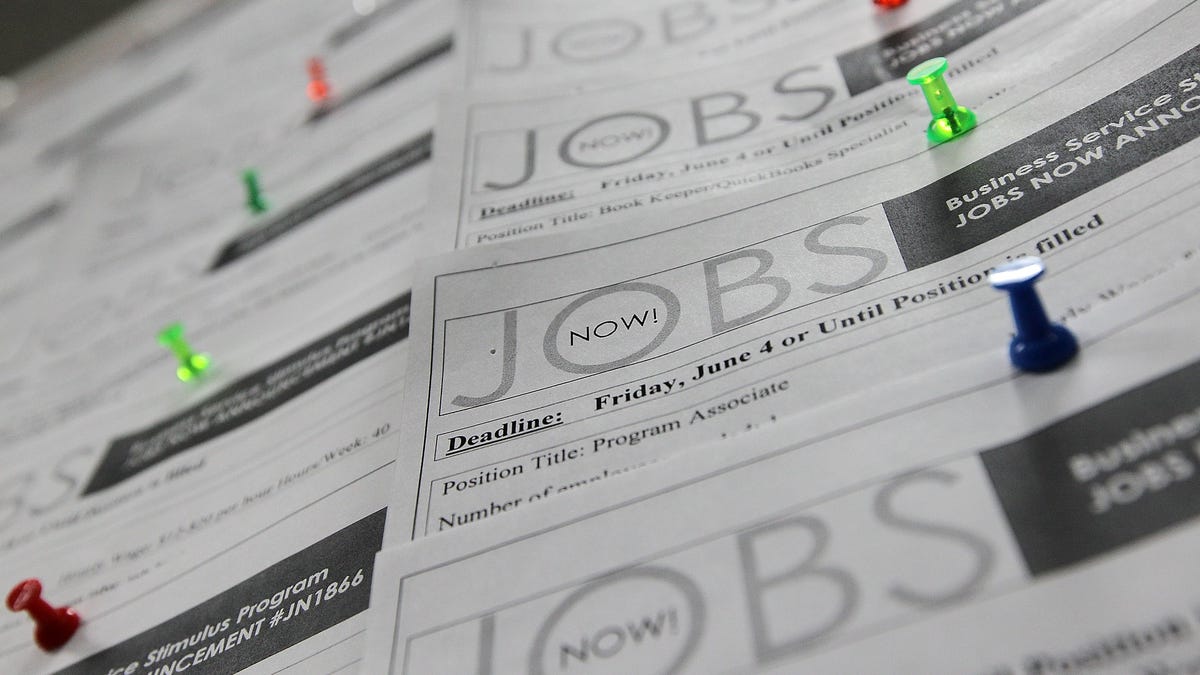Jobs
An ETF for playing the jobs report, according to a strategist

David Dietze, managing principal and senior investment strategist of Peapack Private Wealth Management, spoke with Quartz for the latest installment of our “Smart Investing” video series.
Watch the interview above and check out the transcript below. The transcript of this conversation has been lightly edited for length and clarity.
ANDY MILLS (AM): Big jobs number coming out on Friday. What are your predictions?
DAVID DIETZE (DD): We actually see about 200,000 jobs being created and the unemployment rate staying at 3.9, but we’re still gonna wanna drill down there and look at average hourly earnings, number of hours being worked each week. I think our theme here is we are starting to see a softening in the jobs market. And that’s good news and bad news. It’s good news to the extent that you’re looking for the Federal Reserve to ultimately cut rates. Because remember they have a dual mandate. One is to keep inflation at bay, but the other is to maintain employment at full levels. And so to the extent that employment starts slipping, they are gonna be more likely to get more dovish in terms of their monetary policy and ultimately deliver some of the rate hikes that Wall Street so desperately wants. The flip side of course, is if unemployment starts slipping, if joblessness starts going up too much and we see, for example, no jobs created or at some point a negative job creation number. Now that can be very difficult because the problem with monetary policy is it takes time to work into the system. So they can’t just deliver a rate hike and all of a sudden reverse. It’s starting to become an ugly trend in the economy and unfortunately for stock investors, of course, if jobs are disappearing, given that the consumer is 70% of the economy, that means there’s gonna be less spending. Less spending means less corporate profits. Less corporate profits means lower stock prices.
AM: How should investors prepare for Friday? Should they be buying, selling, moving their stocks around?
DD: So we’re long-term investors, so we think longer term inflation’s gonna come down. That’s going to come with some slowdown in the jobs area. But we think ultimately the Fed will come through if we do have a big problem with the economy. So we’re looking for a soft landing, less inflation. So therefore we’re looking for the smaller companies in the economy, which ultimately we think will prosper best. If interest rates come down, they can borrow more cheaply and the economy doesn’t fall off a cliff. And they also have the lower valuations. So we would urge investors not to try and play a one day announcement. I mean one month is not an economy make of course, so what we are hoping for still is we want a Goldilocks where we want some slowing but not too much slowing. And if you wanna parse it further, I suppose that if you are really- if you’re really a pessimist in terms of job creation and see the economy starting to fall off the roof, you might either wanna migrate more to fixed income, which of course is higher up on the food chain. They’ve got to pay that interest payment. They don’t have to pay the dividend. That’s gonna be a safer spot. Interest rates will come down and or you might go with perhaps those overvalued mega cap tax, which have a pile of cash in their balance sheet. People are still going to be conducting the AI revolution no matter what the unemployment rate is on Friday. And then you’d be more cautious with the more cyclical components of the economy. Your energy, your financials, your real estate. If you thought that the economy was fading even faster than some people think long term, it will.
AM: You mentioned small caps being a place investors could put their money. What’s one of your small cap picks?
DD: We would advise investors to buy an ETF. I like IWM, that’s their Russell 2000 ETF. It is an index fund. That way you don’t have to bet, if your theme is small caps, you don’t have to say, I was right on my theme but I was wrong on the company. And it is harder to research the smaller guys. There’s not as much information available, there’s not as many analysts covering it. There’s more idiosyncratic-ness to their business and so forth. So that way you can bet on the theme and take away individual stock risk. IWM.
AM: Alright, IWM. Thank you David.







:max_bytes(150000):strip_icc()/roundup-writereditor-loved-deals-tout-f5de51f85de145b2b1eb99cdb7b6cb84.jpg)


